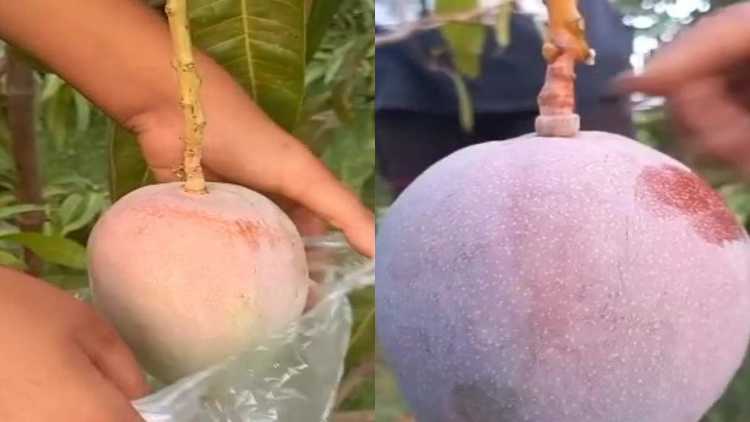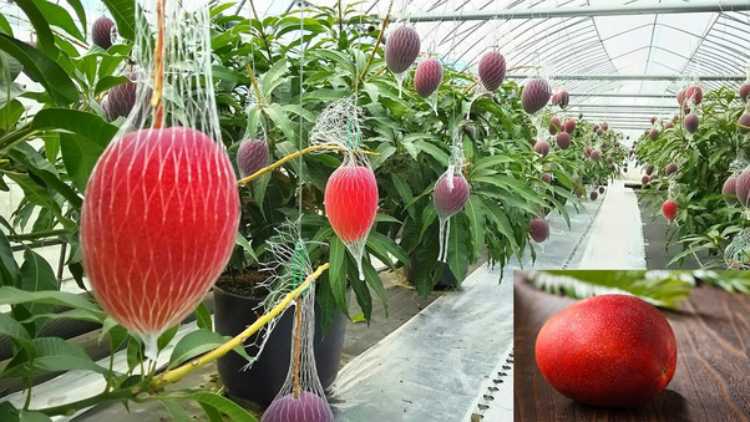
Ghaus Shiwani/New Delhi
At Rs 2 lakh a kilo, the World’s costliest mango known by its Japanese name ‘Taio no Tamgau’ grows inJabalpur, Madhya Pradesh.
Sankalp Parihar and his wife Rani Parihar, grow this variety in their mango farm located on Chargwan road of the city. A few plants gifted to the Sankalp by a stranger during a train journey from Hyderabad to Jabalpur three years ago made the couple experiment with it.
For the four years, “Japanese mango variety trees have been growing and also bearing fruits on their farm.

Japanese mango grown on Jabalpur Farm
Rani Sankalp said the Japanese grow a number of hybrid varieties of mango in the poly houses, in a controlled environment. However, the variety created out of laboratory engineering has grown in the natural environment in Jabalpur and it's a happy augury for the couple.
She says Taio no Tamgau meaning egg of the sun bears big fruits, each weighing at least 1.5 kg, has delicious taste with no fiber and all the pulp and juice.
So far in India among the well-known verities like Dussehri, Totapari, Langra, safeda, Sindhuri etc, Alphonso or Hapus is considered to be the most expensive.
Sankalp and Rani Parihar have planted 14 different varieties of mangoes and 52 Taio no Tamgau tress in their 4-acre orchard. Last year, the price of mango in the international market was Rs 2.70 lakh per kilo, said Sankalp Parihar.
He said that last time the price of mango was Rs 2.70 lakh. Parihar said Tamago is red in colour and the reason why it is also called the egg sun. This mango is very popular in Japan.

Mangoes growing in a poly House in Japan
Sankalp Parihar explains that though demand for the Indian varieties growing on his field is growing each year. However, he has high expectations from the Japanese Variety.
He said growing it is not so easy and it bears very few fruits. Besides, the couple has a tough time keep thieves away from the trees since after knowing its prices, a lot of poachers keep hovering around their farmhouse.
The popularity of Japanese mangoes grown in Jabalpur has spread across the country, but the Horticulture Department has not yet paid attention to Sankalp Parihar's mango orchard. If the Horticulture Department pays more attention to this, other farmers can also benefit from Japanese mango cultivation.

Sankalp working at his farm
Sankalp Parihar has not yet started selling the mangoes. He said that some people from Mumbai and Surat had inquired about it last year. But first, the couple is trying to make the trees grow well before they can bear good fruit. It is in high demand in the international market.
The horticulture department of Madhya Pradesh has so far not taken interest in the experiment by the couple.
